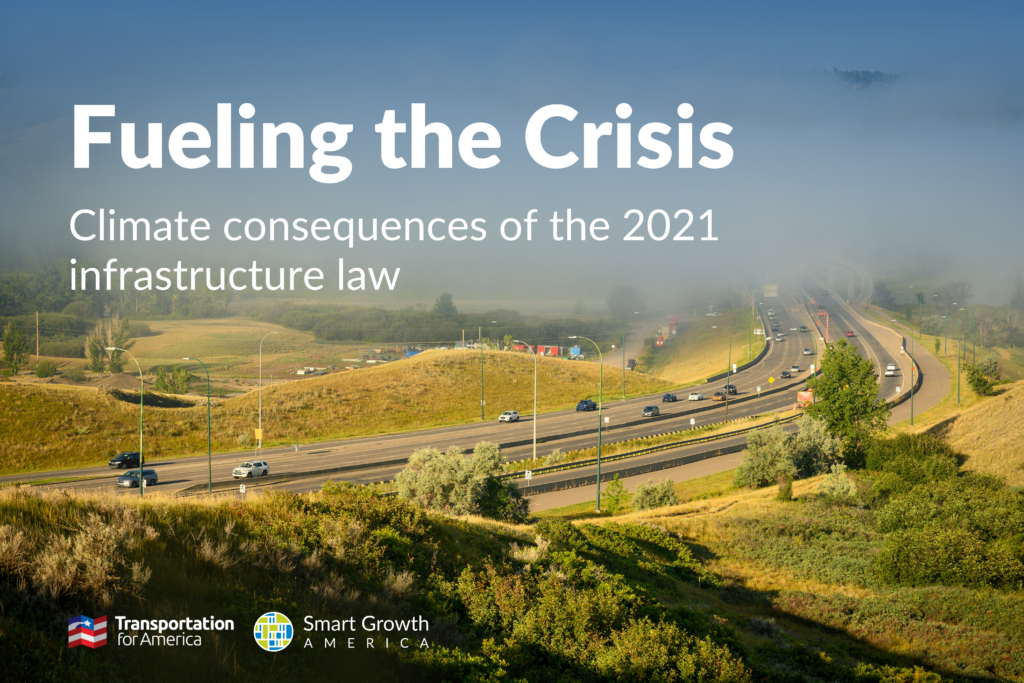On November 15, 2021, President Joe Biden signed the bipartisan Infrastructure Investment and Jobs Act (IIJA) into law. The IIJA included a five-year transportation authorization for U.S. Department of Transportation (USDOT) programs, plus a standalone infrastructure law representing the largest-ever infusion ($643 billion over five years) of federal funding for surface transportation, including highways, roads, and bridges. The White House hailed the IIJA as “a once-in-a-generation investment in our nation’s infrastructure and competitiveness,” along with making lofty promises that it would “repair and rebuild our roads and bridges with a focus on climate change mitigation, resilience, equity, and safety for all users.”
But the lion’s share of IIJA funding flows into what’s known as “formula” programs that are controlled by states and their departments of transportation, and they decide what to build, where, and how.
Unless these patterns change, we extrapolate that states’ federal formula-funded investments made over the course of the IIJA could cumulatively increase emissions by nearly 190 million metric tonnes of emissions over baseline levels through 2040 from added driving. This is the emission equivalent of 500 natural gas-fired power plants or nearly 50 coal-fired power plants running for a year.



Those are chump numbers compared to what Trump has planned.